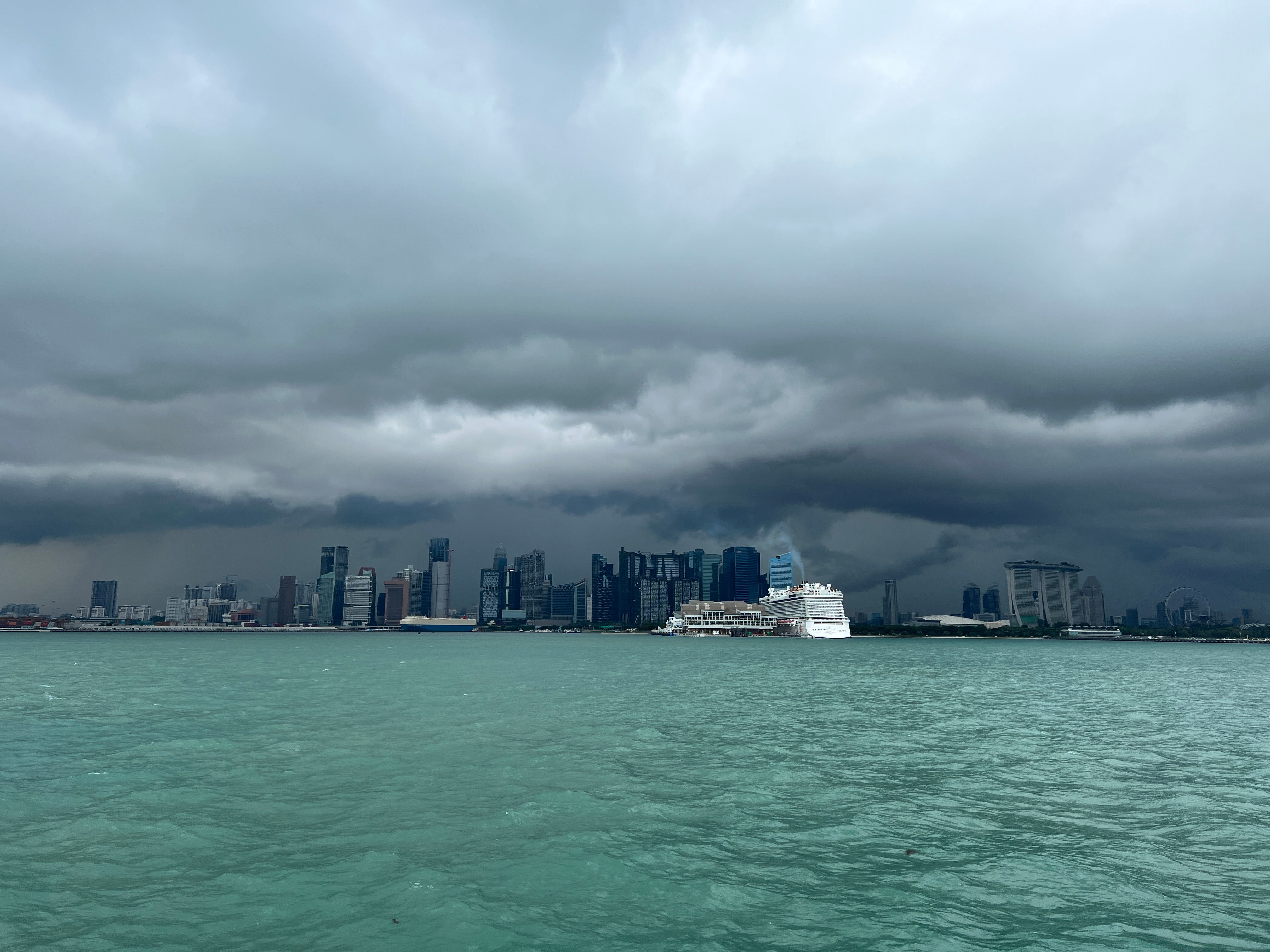‘There’s a bit of weather ahead’: What pilots really mean when they make in-flight announcements
Plane Talk: How pilots reassure passengers about ‘lumps and bumps’

On the approach to Singapore last Saturday afternoon, the captain of British Airways flight BA11 announced there was “a bit of weather” at the airport and that we would be delayed as a result.
Weather is ever-present, if inconstant. So what exactly do pilots mean when they say “a bit of weather”? I asked around – and was pleasantly reminded of the professionalism of UK pilots.
First call: Nancy Jackson of the British Airline Pilots’ Association (Balpa).
“For pilots the word ‘weather’ means something in the air which, if you had a choice, you would rather avoid for operational or passenger comfort reasons,” she says.
“In the case of Singapore it would almost certainly be a thunderstorm. They are challenging and are worth avoiding, especially near to the ground.”
Ms Jackson kindly connected me with a former British Airways captain, Tim Pottage. During a career spanning three decades, he evidently took great care about what he told the passengers.
“Pilots tend to be cautious and calming with what they say to passengers – so as to inform, but not alarm.”
For example, he says, pilots will not include the phrase “I’m afraid that ...” in case an anxious passenger latches on to it and says to their neighbour: “Did you hear that? Oh my God, the pilot is afraid.”
On the “bit of weather” question, Mr Pottage says: “TS [thunderstorms]/CB [cumulonimbus] are best flown around rather than through and so tend to mess up the normally smooth arrival process.”
The Met Office calls cumulonimbus “The King of Clouds” and describes them thus: “They get taller and taller until they represent huge powerhouses, storing the same amount of energy as 10 Hiroshima-sized atom bombs.”
Hmm. British aviation has an extraordinarily good safety record, and you should relax the moment you step on board a plane. But repeating the Met Office definition would possibly not comprise a soothing passenger announcement.
A serving captain with a leading UK airline agrees: “I’m very sparing regarding thunderstorms and turbulence on any passenger address as customers are very wary of anything out of the ordinary.”
Ahead of a recent trip from Miami to London the weather report included “another example of what we usually colloquially call weather: a dirty great thunderstorm cell over the airport”.
He says: “When that’s in place you have lightning risk plus heavy showers with downdraughts (windshear).
“The functionality of the airport was probably severely constrained during that period – though it was fine for our departure a couple of hours later.
“Thus, pilots will often refer to ‘a little bit of weather’ regarding delays in or out of Miami due to that dirty great CB cell over the airfield.”
Over to Captain Pottage, who says: “If a thunderstorm is temporarily sitting over the airfield then landings can be suspended for 10 minutes or so.
“I’d use the ‘bit of weather’ expression as a catch-all non-specific term for something like that: a minor delay with negligible chance of diverting, five out of 10 on the Tim Pottage weather scale.”
If you hear the term “lumps and bumps” from the flight deck, that is because the pilot wants to use a more reassuring term than “turbulence” – at a time when he or she may be facing some challenges (another, gentler term).
The serving captain supplied a flight-deck picture of the weather map for a southwestern US approach full of alarming-looking red and purple patches.
“As you can see, there was a fair bit of weather around,” he says. The flight diverted. Eventually everyone got where they needed to be, safely.
Back to Nancy Jackson of Balpa. “If necessary storms can usually be landed in or through, but the resulting rather violent ride would be enough to put a nervous passenger off flying again.
“That’s not what we want.”
Subscribe to Independent Premium to bookmark this article
Want to bookmark your favourite articles and stories to read or reference later? Start your Independent Premium subscription today.

Join our commenting forum
Join thought-provoking conversations, follow other Independent readers and see their replies